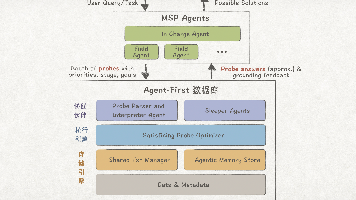利用GStreamer 解析RTSP视频流,并保存cv::Mat
硬解码rtsp视频流,并封装成opencvMat,供后续使用。
·
一,
硬解码rtsp视频流,并封装成opencv Mat,供后续使用
二,

#pragma once
#include <opencv2/core/core.hpp>
#include <string>
#include <gst/gst.h>
#include "websocket_server.h"
namespace Transmit
{
class RTSPDecode : public std::enable_shared_from_this<RTSPDecode>
{
public:
using Ptr = std::shared_ptr<RTSPDecode>;
~RTSPDecode();
/**
* @brief 初始化编码器
*/
int init(int width, int height,std::string url);
int width()
{
return width_;
}
int height()
{
return height_;
}
GstElement *rtph264depay()
{
return rtph264depay_;
}
private:
GstElement *pipeline_;
GstElement *rtspsrc_; // 读取rtsp流
GstElement *rtph264depay_; // 从rtspsrc接收到rtp包
GstElement *h264parse_; // 分割输出H264帧数据
GstElement *omxh264dec_; // 硬解码H264帧数据
GstElement *nvvidconv_; // 硬解码drm_prime帧数据成BGRx
GstElement *capsfilter_; // 指定输出的数据类型
GstElement *videoconvert_; // 转换video数据格式
GstElement *appsink_; // 获取BGRx数据
int width_ = 0;
int height_ = 0;
std::string url_;
};
}
#include <transmit/rtsp_decode.h>
#include <iostream>
#include <stdio.h>
#include <unistd.h>
#include <gst/gst.h>
#include <gst/gstelement.h>
#include <gst/app/gstappsink.h>
#include <opencv2/core/core.hpp>
#include <opencv2/opencv.hpp>
using namespace std;
namespace Transmit
{
GstFlowReturn CaptureGstBGRBuffer(GstAppSink *sink, gpointer user_data)
{
RTSPDecode *data = (RTSPDecode *)user_data;
GstSample *sample = gst_app_sink_pull_sample(sink);
if (sample == NULL)
{
return GST_FLOW_ERROR;
}
GstBuffer *buffer = gst_sample_get_buffer(sample);
GstMapInfo map_info;
if (!gst_buffer_map((buffer), &map_info, GST_MAP_READ))
{
gst_buffer_unmap((buffer), &map_info);
gst_sample_unref(sample);
return GST_FLOW_ERROR;
}
cv::Mat bgra = cv::Mat(data->height(), data->width(), CV_8UC4, (char *)map_info.data, cv::Mat::AUTO_STEP);
cv::Mat bgr;
cv::cvtColor(bgra, bgr,cv::COLOR_BGRA2BGR);
static int sampleno = 0;
char szName[56] = {0};
sprintf(szName, "%d.jpg", sampleno++); // 设置保存路径
//memcpy(frame.data, map_info.data, map_info.size);
cv::imwrite(szName, bgr);
// fprintf(stderr, "Got sample no %d %d\n", sampleno++, (int)map_info.size);
gst_buffer_unmap((buffer), &map_info);
gst_sample_unref(sample);
return GST_FLOW_OK;
}
static void RtspSrcPadAdded(GstElement *element, GstPad *pad, gpointer data)
{
gchar *name;
GstCaps *p_caps;
gchar *description;
GstElement *p_rtph264depay;
name = gst_pad_get_name(pad);
g_print("A new pad %s was created\n", name);
// here, you would setup a new pad link for the newly created pad
// sooo, now find that rtph264depay is needed and link them?
p_caps = gst_pad_get_pad_template_caps(pad);
description = gst_caps_to_string(p_caps);
printf("%s \n", description);
g_free(description);
p_rtph264depay = GST_ELEMENT(data);
// try to link the pads then ...
if (!gst_element_link_pads(element, name, p_rtph264depay, "sink"))
{
printf("Failed to link elements 3\n");
}
g_free(name);
}
RTSPDecode::~RTSPDecode()
{
if (pipeline_)
{
gst_element_set_state(pipeline_, GST_STATE_NULL);
gst_object_unref(pipeline_);
pipeline_ = nullptr;
}
}
int RTSPDecode::init(int width, int height, std::string url)
{
width_ = width;
height_ = height;
url_ = url;
pipeline_ = gst_pipeline_new("pipeline");
rtspsrc_ = gst_element_factory_make("rtspsrc", "Rtspsrc");
rtph264depay_ = gst_element_factory_make("rtph264depay", "Rtph264depay");
h264parse_ = gst_element_factory_make("h264parse", "H264parse");
omxh264dec_ = gst_element_factory_make("omxh264dec", "Omxh264dec");
nvvidconv_ = gst_element_factory_make("nvvidconv", "Nvvidconv");
capsfilter_ = gst_element_factory_make("capsfilter", "Capsfilter");
videoconvert_ = gst_element_factory_make("videoconvert", "Videoconvert");
appsink_ = gst_element_factory_make("appsink", "Appsink");
if (!pipeline_ || !rtspsrc_ || !rtph264depay_ || !h264parse_ || !omxh264dec_ || !nvvidconv_ || !capsfilter_ || !videoconvert_ || !appsink_)
{
std::cerr << "Not all elements could be created" << std::endl;
return -1;
}
// 设置
g_object_set(G_OBJECT(rtspsrc_), "location", url_.c_str(), "latency", 2000, NULL);
g_object_set(G_OBJECT(capsfilter_), "caps", gst_caps_new_simple("video/x-raw", "format", G_TYPE_STRING, "BGRx", "width", G_TYPE_INT, width_, "height", G_TYPE_INT, height_, nullptr), NULL);
// Set up appsink
g_object_set(G_OBJECT(appsink_), "emit-signals", TRUE, NULL);
g_object_set(G_OBJECT(appsink_), "sync", FALSE, NULL);
g_object_set(G_OBJECT(appsink_), "drop", TRUE, NULL);
g_signal_connect(appsink_, "new-sample", G_CALLBACK(CaptureGstBGRBuffer), reinterpret_cast<void *>(this));
// Set up rtspsrc
g_signal_connect(rtspsrc_, "pad-added", G_CALLBACK(RtspSrcPadAdded), rtph264depay_);
// BAdd elements to pipeline
gst_bin_add_many(GST_BIN(pipeline_), rtspsrc_, rtph264depay_, h264parse_, omxh264dec_, nvvidconv_, capsfilter_, videoconvert_, appsink_, nullptr);
// Link elements
if (gst_element_link_many(rtph264depay_, h264parse_, omxh264dec_, nvvidconv_, capsfilter_, videoconvert_, appsink_, nullptr) != TRUE)
{
std::cerr << "rtspsrc_, rtph264depay_, h264parse_, omxh264dec_, nvvidconv_, capsfilter_,videoconvert_,appSink_ could not be linked" << std::endl;
return -1;
}
// Start playing
auto ret = gst_element_set_state(pipeline_, GST_STATE_PLAYING);
if (ret == GST_STATE_CHANGE_FAILURE)
{
std::cerr << "Unable to set the pipeline to the playing state" << std::endl;
return -1;
}
return 0;
}
}更多推荐
 已为社区贡献9条内容
已为社区贡献9条内容









所有评论(0)